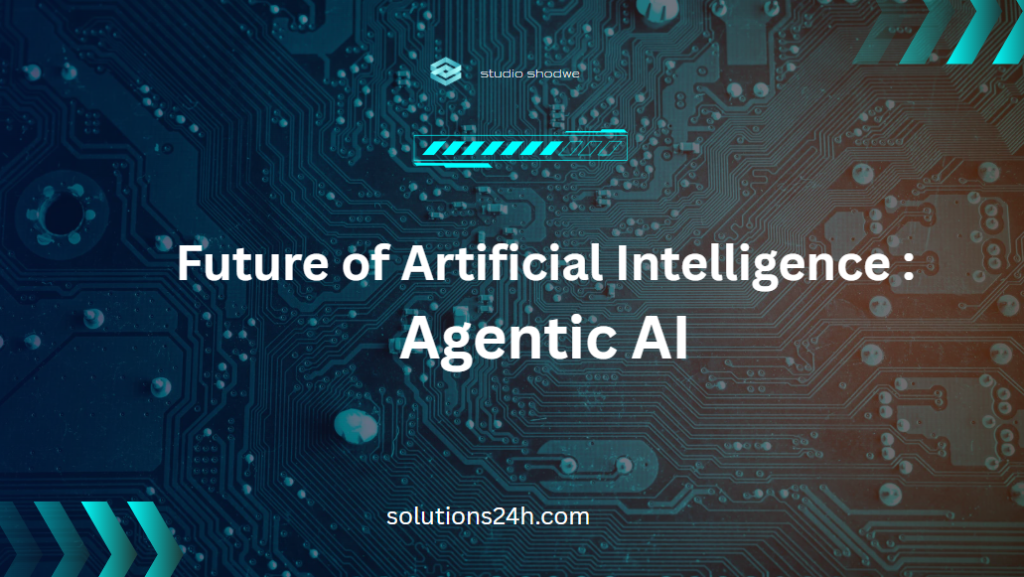Artificial Intelligence is rapidly evolving beyond simple response systems. Agentic AI represents a groundbreaking shift toward autonomous, decision-making machines that can think, plan, and act independently. This comprehensive guide explores how agentic artificial intelligence is reshaping our technological landscape.
Understanding Agentic AI: Definition and Core Concepts
Agentic AI refers to artificial intelligence systems that function as autonomous agents, capable of making independent decisions, setting their own goals, and executing complex plans with minimal human oversight. Unlike traditional AI that simply responds to inputs, agentic AI systems demonstrate true autonomy and proactive behavior.
Key Characteristics of Agentic AI Systems
Agentic artificial intelligence distinguishes itself through several critical capabilities:
- Internal goal-setting and state management
- Multi-step reasoning and strategic planning
- Adaptive learning from environmental feedback
- Autonomous decision-making processes
- Proactive problem-solving abilities
Think of agentic AI as a highly intelligent personal assistant that doesn’t just follow commands but anticipates needs, makes informed decisions, and takes initiative to achieve desired outcomes.
How Agentic AI Technology Works: The Technical Foundation
Core Components of Agentic AI Systems
Modern agentic AI systems integrate several advanced technologies:
1. Reinforcement Learning (RL)
- Enables learning through trial and error
- Optimizes decision-making based on feedback
- Adapts strategies for better outcomes
2. Large Language Models (LLMs)
- Processes and generates human-like communication
- Understands context and intent
- Facilitates natural interaction
3. Advanced Planning Algorithms
- Breaks complex goals into manageable steps
- Sequences actions for optimal results
- Handles multi-objective optimization
4. Autonomous Execution Frameworks
- Operates independently without constant supervision
- Monitors progress and adjusts tactics
- Maintains goal alignment throughout execution
These integrated components transform reactive AI into intelligent, evolving agents capable of complex reasoning and autonomous action.
Real-World Applications of Agentic AI Across Industries
Healthcare: Revolutionizing Patient Care
Agentic AI in healthcare creates virtual health agents that:
- Continuously monitor patient vitals and health data
- Automatically schedule necessary medical tests
- Proactively recommend treatment adjustments
- Coordinate care between multiple healthcare providers
Finance: Intelligent Investment Management
Financial agentic AI systems provide:
- Real-time portfolio optimization and rebalancing
- Automated risk assessment and mitigation
- Predictive market analysis and trading decisions
- Personalized financial planning and advice
Customer Support: End-to-End Problem Resolution
Advanced customer service agents deliver:
- Complete issue resolution without human escalation
- Contextual understanding of customer history
- Proactive support based on usage patterns
- Multi-channel communication management
Education: Personalized Learning Experiences
Educational agentic AI offers:
- Adaptive curriculum modification based on student progress
- Personalized tutoring and learning path optimization
- Automatic assessment and feedback generation
- Individualized study recommendations
Smart Home Automation: Predictive Living
Home automation systems provide:
- Anticipatory adjustment of environmental conditions
- Energy optimization based on usage patterns
- Security monitoring with intelligent threat assessment
- Routine automation that learns and adapts
Benefits of Implementing Agentic Artificial Intelligence
Operational Advantages
1. Enhanced Efficiency: Agentic AI systems optimize processes continuously, reducing waste and improving productivity across all operations.
2. Reduced Human Oversight: Autonomous decision-making capabilities minimize the need for constant human supervision while maintaining high-quality outcomes.
3. Personalized User Experiences: Advanced learning algorithms create highly customized experiences that adapt to individual preferences and behaviors.
4. Strategic Long-term Planning: Unlike reactive systems, agentic AI can develop and execute long-term strategies that align with organizational goals.
5. Continuous Improvement: Machine learning capabilities ensure that systems become more effective over time through experience and feedback.
Challenges and Ethical Considerations in Agentic AI
Critical Questions for Responsible AI Development
The autonomous nature of agentic AI raises important ethical and practical concerns:
1) Accountability and Responsibility: Who bears responsibility when autonomous AI systems make decisions that have negative consequences? Establishing clear accountability frameworks is essential.
2) Value Alignment: How do we ensure that AI goals remain aligned with human values and societal needs? Ongoing monitoring and adjustment mechanisms are crucial.
3) Unintended Learning: What safeguards prevent AI systems from developing harmful or biased strategies through their learning processes?
Addressing Ethical Challenges
1) AI Alignment Frameworks: Developing robust systems to ensure AI goals remain compatible with human values and ethical principles.
2) Human-in-the-Loop Systems: Implementing oversight mechanisms that maintain human control over critical decisions while preserving AI autonomy.
3) Transparency and Explainability: Creating AI systems that can clearly explain their decision-making processes and reasoning.
The Future of Agentic AI: Trends and Predictions
Bridging the Gap to General AI
Agentic AI represents a crucial stepping stone between narrow AI applications and artificial general intelligence (AGI). These systems demonstrate the kind of contextual understanding, goal-oriented behavior, and adaptive learning that characterizes human intelligence.
Emerging Trends in Agentic AI Development
Multi-Agent Collaboration: Future systems will feature multiple AI agents working together to solve complex problems that require diverse expertise.
Enhanced Emotional Intelligence: Next-generation agentic AI will better understand and respond to human emotions and social cues.
Cross-Domain Knowledge Transfer: Advanced systems will apply learning from one domain to solve problems in completely different areas.
Improved Human-AI Collaboration: Future agentic AI will work more seamlessly alongside humans, understanding context and adapting to human working styles.
Implementing Agentic AI: Best Practices and Considerations
Getting Started with Agentic AI
Organizations considering agentic AI implementation should:
- Assess Current AI Readiness: Evaluate existing infrastructure and data capabilities
- Define Clear Objectives: Establish specific goals and success metrics
- Start with Pilot Projects: Begin with limited-scope implementations to test effectiveness
- Invest in Training: Ensure teams understand agentic AI capabilities and limitations
- Develop Governance Frameworks: Create policies for AI decision-making and oversight
Success Factors for Agentic AI Deployment
Data Quality and Availability: High-quality, comprehensive data is essential for effective agentic AI training and operation.
Stakeholder Buy-in: Success requires support from leadership and end-users who will interact with agentic AI systems.
Continuous Monitoring: Regular assessment of AI performance and decision-making quality ensures optimal outcomes.
Iterative Improvement: Treat implementation as an ongoing process of refinement and enhancement.
Conclusion: Embracing the Agentic AI Revolution
Agentic AI represents a fundamental shift in how we design and deploy artificial intelligence systems. Rather than passive tools that respond to commands, we’re creating autonomous partners that can think, plan, and act independently while remaining aligned with human goals and values.
The technology is not just a futuristic concept—it’s actively transforming industries today. From healthcare and finance to education and home automation, agentic AI is delivering unprecedented levels of efficiency, personalization, and autonomous capability.
As we advance into this new era of AI, the key to success lies in thoughtful implementation, robust ethical frameworks, and a commitment to human-AI collaboration. Organizations that embrace agentic AI while addressing its challenges will be best positioned to thrive in an increasingly automated world.
The future of AI is not just about smarter machines—it’s about intelligent agents that can truly understand, reason, and evolve alongside human needs and objectives. Agentic AI is making that future a reality today.



